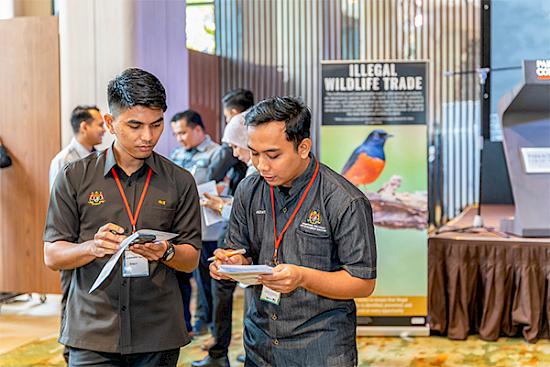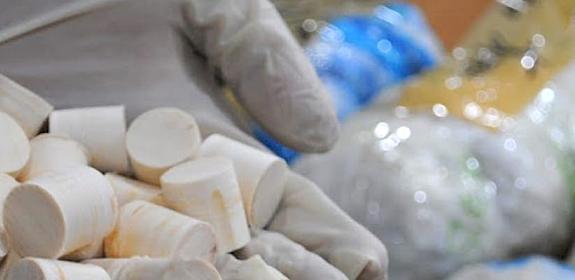No entry: Malaysia’s enforcers forge plans to prevent wildlife trafficking at borders
From armadillos in luggage to fishing vessels carrying tonnes of dried turtle meat, Malaysia’s enforcers have dealt with novel and large-scale wildlife seizures near its international entry and exit points over the past decade.
This week they came together to devise collective strategies to tackle the threat in an unprecedented gathering of over a hundred law enforcers.
The enforcement agencies were joined by transport and logistics sector representatives and focused on identifying and addressing existing gaps between sectors and agencies, which have historically been a challenge in combating wildlife trafficking.
The country’s airports and seaports have witnessed some of the world’s most significant seizures of ivory, rhino horn and pangolin scales from Africa. Meanwhile, a steady stream of smuggling attempts has been recorded at its land border crossings, along its coastline and in its territorial waters.
 TRAFFIC data showed seizures in Malaysia, from 2014 to 2023 involved a conservative estimate of over 74,311 individuals and another 194 tonnes of wildlife and their parts. It also included the seizure of 59,598 individuals and an additional 3,462 tonnes of plants. A significant portion of these were seized at the country’s entry and exit points.
TRAFFIC data showed seizures in Malaysia, from 2014 to 2023 involved a conservative estimate of over 74,311 individuals and another 194 tonnes of wildlife and their parts. It also included the seizure of 59,598 individuals and an additional 3,462 tonnes of plants. A significant portion of these were seized at the country’s entry and exit points.
The seizures were made by multiple enforcement agencies, each with distinct responsibilities and varying levels of authority. They manage different aspects of security, access, and inspections for goods, people, and cargo.
The UNITE: Combatting Wildlife Trafficking at Malaysian Borders Roundtable held this week was designed as a collective forum to evaluate and understand the level and complexity of the illegal trade passing through these points.
It was hailed as a great platform for sharing knowledge, experience and strategies in the effort to fight wildlife trafficking, especially across the country’s borders by Malaysia’s Deputy Natural Resources and Environmental Sustainability Minister Dato’ Sri Huang Tiong Sii, in his opening address.
He warned that while seizures worth hundreds of millions had been made by the country’s multi-agency wildlife crime fighting taskforce and close to 500 people arrested between 2021 and July 2024, such law enforcement action alone was not enough.
"Seizures of wildlife specimens cannot be considered a complete success. It only reflects the large volume of wildlife taken from its natural habitat because of poaching,” said Huang stressing the need for closer collaboration between the 30 agencies and transport sector organisations present, to stem wildlife crime.
The roundtable was organised by TRAFFIC International Southeast Asia in collaboration with the Ministry of Natural Resources and Environmental Sustainability of Malaysia under the Catalyse Project*.
It will be followed by a series of targeted training workshops carried out at major seaports, airports, and land border checkpoints in coming months, designed around findings at this event.
Faced with increasingly sophisticated and nimble wildlife smugglers, the fight against wildlife crime requires unified action. No agency or sector can manage this alone, nor should they.”
Kanitha Krishnasamy, Director for TRAFFIC in Southeast Asia“When we focus solely on individual metrics, we often overlook solutions right before us. But together, we can seize opportunities and make a real impact,” she added.
Findings and recommendations from the workshop will form the basis for upcoming location-specific engagement at air, sea and land border hotspots. These will also guide the development of materials, tools, and resources to boost collaboration and action on wildlife crime at the country’s borders.
Notes:
* Catalyse or Catalysing Action in Malaysia to Strengthen Enforcement, is funded by United States Department of State, Bureau of International Narcotics and Law Enforcement Affairs (INL)





